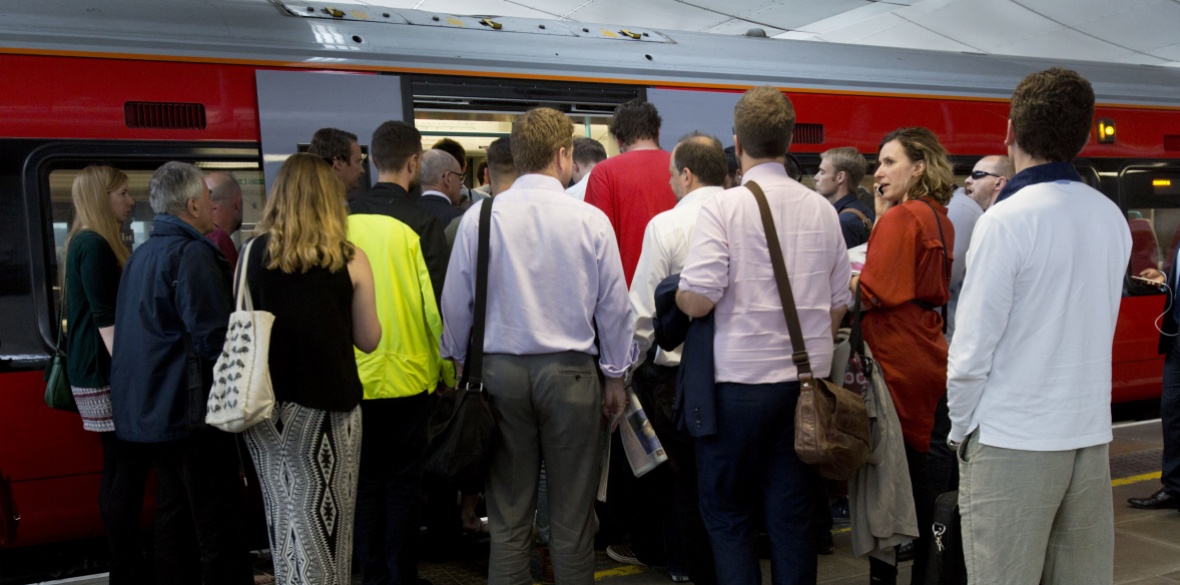This is the last article you can read this month
You can read more article this month
You can read more articles this month
Sorry your limit is up for this month
Reset on:
Please help support the Morning Star by subscribing here
ANOTHER excessive and unaffordable increase in rail fares opens the new year, with the usual dishonest justification delivered in harmonised chorus by government and private train operating companies (TOCs).
TOCs don’t rely solely on milking passengers. They milk all of us, helping themselves to £46 billion in state subsidies over the past decade, with £4.2bn for 2016-17 the most recent handout to wealthy companies and their shareholders.
During that decade, the privateers raked in around £3.5bn in profits to spread among their shareholders and directors.
One of the major enticements offered by John Major’s Tory government in trying to sell rail privatisation in the early 1990s was that it would end the annual government subsidy to public corporation British Rail.
For good measure, Tory ministers also foresaw private-sector “efficiency” delivering better services and cheaper fares.
Well, that all seems to have worked out pretty well, doesn’t it? Wrong on every count.
Privateers have taken a novel attitude to meeting timetable requirements in some areas, cancelling trains as a means of reducing the frequency of services running late.
This must be a prime example of the private-sector expertise and blue-skies thinking that we were promised would replace stodgy old nationalised industry lack of imagination.
It hasn’t, however, done away with the need to continue putting financial pressure on rail passengers whose fares have risen in real terms by 27 per cent since privatisation.
Such managerial wizardry must be what justifies the huge incomes paid to TOC directors who have taken over public monopolies in the shape of franchises on particular routes to run them as private monopolies with little assistance aside from a consistently generous state subsidy and a government-guaranteed fares racket that delivers annual increases based on RPI rather than the lower CPI inflation formula.
Many people question why fares must rise so steeply and whether the current system could permit a different calculation to reduce the burden on passengers.
The reason is that successive governments, whether New Labour, Tory or Tory-Liberal Democrat coalition, decided from 2007 onwards to make passengers shoulder a greater share of the cost of decades-delayed investment in rail modernisation.
Rail commuters are an easy target because they have no alternative means of getting to work and have to pay up or lose their jobs.
While they tighten their belts, the fat cats running the franchises and pulling in huge salaries, bonuses and dividends defend their ill-gotten gains by quoting their companies’ trading success.
Neither they nor their companies mirror the classic capitalist model of reward for innovation, speculative investment or risk.
They don’t buy or own trains. They lease them from rolling stock companies that corner about £200m in profits each year for playing the middle man between government finance and TOCs.
They take no risks because government negotiators collude with them over franchise terms so that major financial returns to the Treasury are scheduled for the latter part of contracts.
This allows franchisee companies to hand the keys back when they feel like it, with profits undisturbed in shareholders’ accounts, no financial cost and no disqualification from bidding for future lucrative franchises.
Whenever Directly Operated Railways, the public company of last resort, steps in to cover a fleeing TOC, its results — efficiency, safety, Treasury returns — have been exemplary.
No wonder three-quarters of voters want our railways back in public ownership. This battle must be fought and won.












